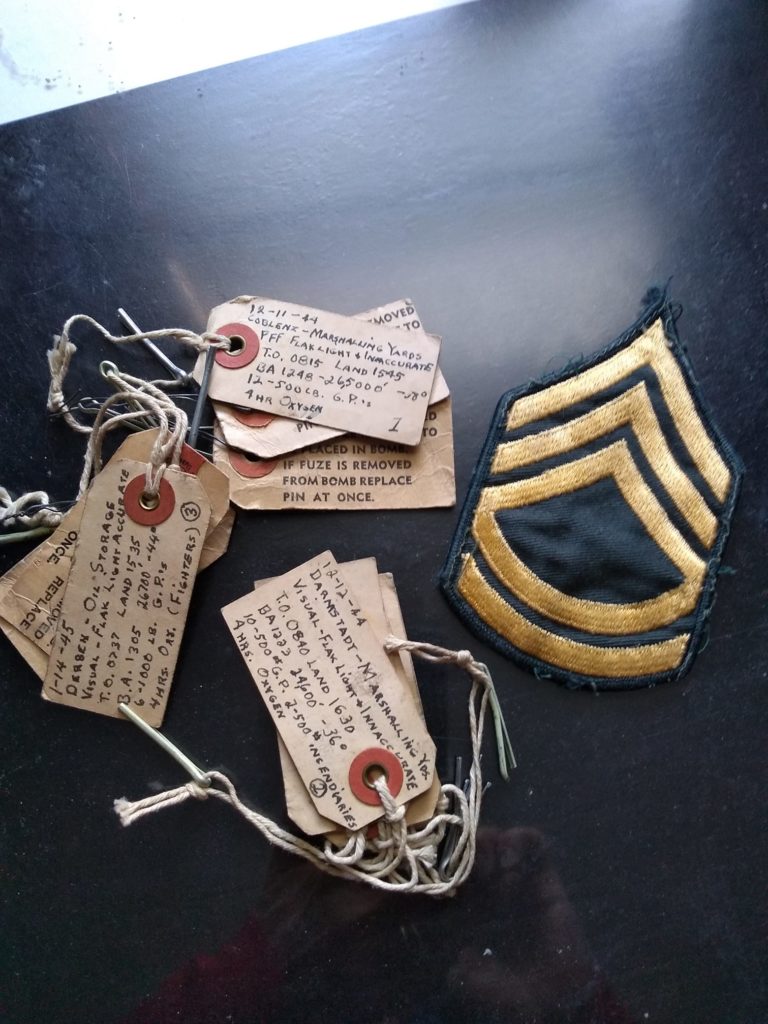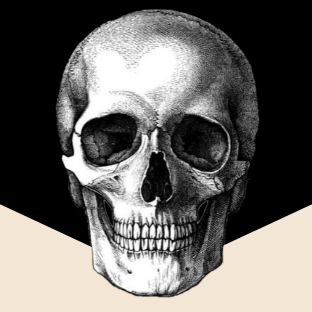Editor’s Note:
Occasionally while going through submissions, we come across works that just seem to fit together. The three pieces featured this week are all in different artistic forms. Each one speaks to the concept of war, how it affects those involved, and how life manages to go on during and after conflict. The authors make us reflect on our world, and the cyclical nature of history. They make us think about the world we want to create. We hope you’ll enjoy My Father’s B-17 Cotter Pins, Memories of Yucca Flats, and The Sirens Ringing Out. Please show your support to the wonderful authors!
-Adrienne Rozells (Poor Yorick EIC)
My Father’s B-17 Cotter Pins by Diane Kendig
How did these survive my mother’s rampages, pitching
stuff to make room for six of us in this small house?
Not to mention the siblings’ final clearance, clearing
even Dad out into a residence he didn’t want to reside in,
and everything— Dewalt saws, cedar and cherry boards,
all their wedding and anniversary gifts— sold off
to a guy with a trailer for four hundred dollars.
But here the ten tiny manilla tags lay tangled, splayed
on strings twisted to the pins. Five read: “To be removed
after bomb has been placed in dropping and arming wire
inserted. If bomb is not dropped, replace pin before
removing arming wire.” Five say it shorter, larger, all caps,
we’re getting warmer: PIN NOT TO BE REMOVED TILL
FUSE IS ABOUT TO BE PLACED IN BOMB. IF FUSE
IS REMOVED FROM BOMBS REPLACE PIN AT ONCE.”
The backs are blank, except for three, numbered 1, 2, 3.
Six lines of an 18-year-old’s careful printing crammed on
in black ink: date, site, visuals, poundage, positionings,
and the last line: “4 HOURS OXYGEN.” I remember
he said they’d have twho Hershey bars and a packet
of Chicklets he’d chew as long as he could
till his facial skin was raw with the mask’s rubbing.
When I touch them, they do not spark joy but press
so deep I can’t breathe, and I will be holding on to one,
number one: “12-11-44- Coblenz.” I see him so young,
penning the facts of his first battle. I’ve read it was terrible,
they lost nine planes. He never told me that. He said once,
“They’d come into the barracks with a cart to load
the possessions of the missing men, and then rattle away.
The sound made you sick.”

Image of Cotter Pins and Bomb Tags, from Diane Kendig
Memories of Yucca Flats by R.C. Goodwin
The Sirens Ringing Out by David R. Mellor
Transcription of The Sirens Ringing Out:
The sirens are ringing out
Did I wake up to 1939?
Bits of paper waved in the air
As a bomb rips through a house
“We’ll hit them in their bank accounts”
But no statement can save a child’s life
The sirens ringing out
Wailing across a Kyiv square
A mother in Donetsk a sister in Odesa
A cold chill running down her spine
“It’s hopeless”
It’s happening again
The sirens are ringing
And it’s not 1939, it’s here and now
And from the west
A thick cloud of hot air, saving nobody.
About the Authors
Diane Kendig lives in her hometown of Canton, Ohio, returning after 40 years away to live in the house her father built in 1947. Her six poetry collections include her latest, Woman with a Fan (Shanti 2021), and Prison Terms, the latter based on her 18 years teaching in prison. She co-edited the anthology, In the Company of Russell Atkins. Her writing has appeared in Valparaiso Review, Pensive, and New Verse News, among others. She curates the weblog “Read + Write: 30 Days of Poetry,” for the Cuyahoga County Public Library. Website: Dianekendig.com
…
R.C. Goodwin’s published writings include thirteen short stories, three of which won literary competitions. His debut book, THE STEPHEN HAWKING DEATH ROW FAN CLUB, a prison-centric collection of short fiction, was published in 2015 (Langdon Street Press, Minneapolis). It was named a Kirkus Indie Notable Book. In 2018 his novel, MODEL CHILD, was published (SideStreet Press, Chicago). His current project is a memoir, MAKING GOD LAUGH. The title was inspired by a proverb: “Do you know how to make God laugh? Tell Him your plans.”
…
Born 1964, (Liverpool, England) to a difficult birth, David didn’t find his voice until his youth. Years of thinking he was nobody and treated as such. Including a period of homelessness in the desperate Thatcher Years However, he hit the paper papering over the scars. Found understanding and belief through words. He has been published and performed widely from the BBC, The Tate, galleries and pubs and everything in between. His poems and stories are autobiographical, others topical and several his take on life.
